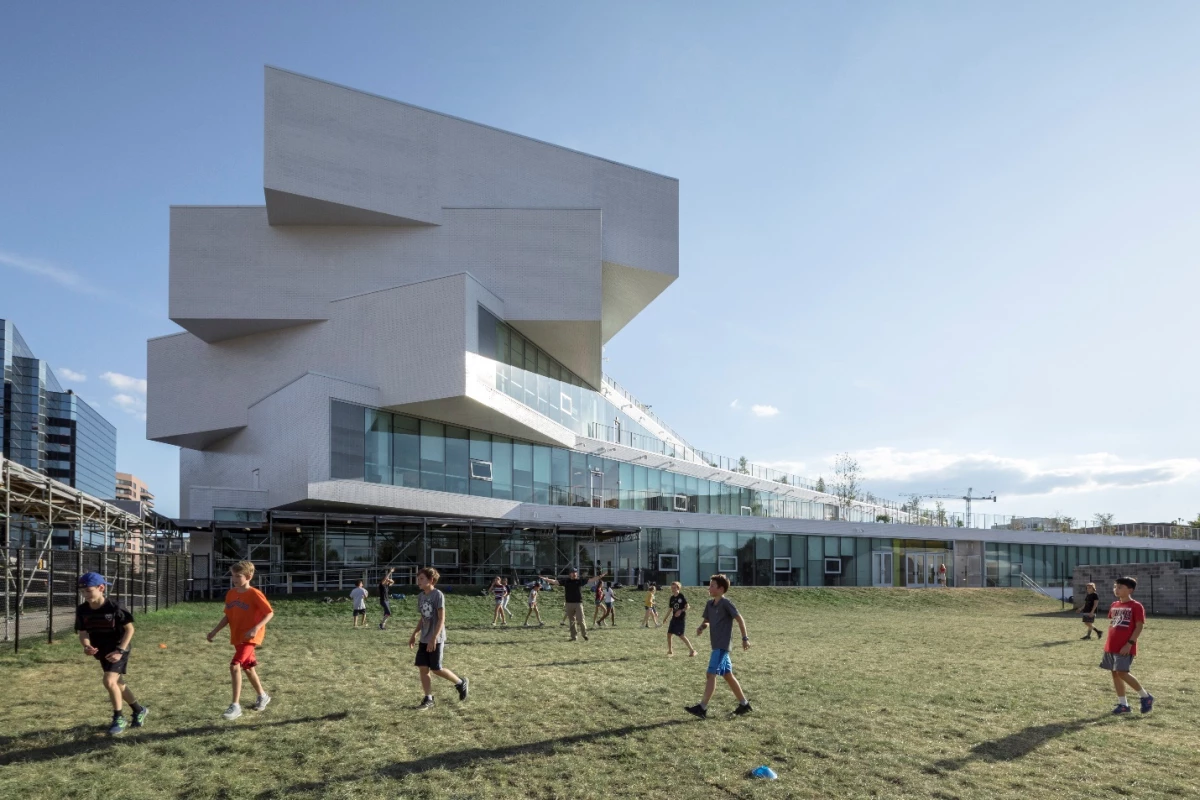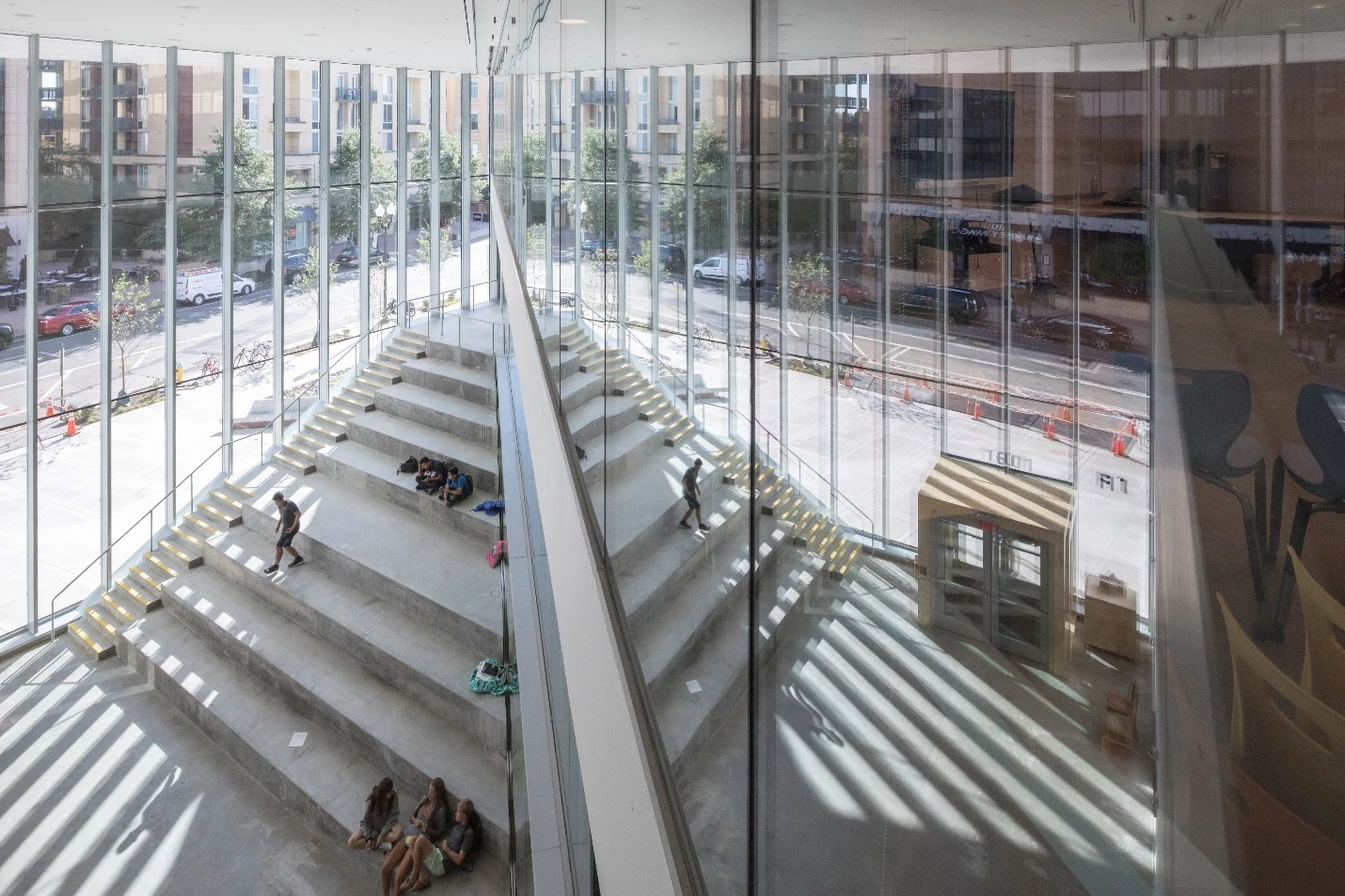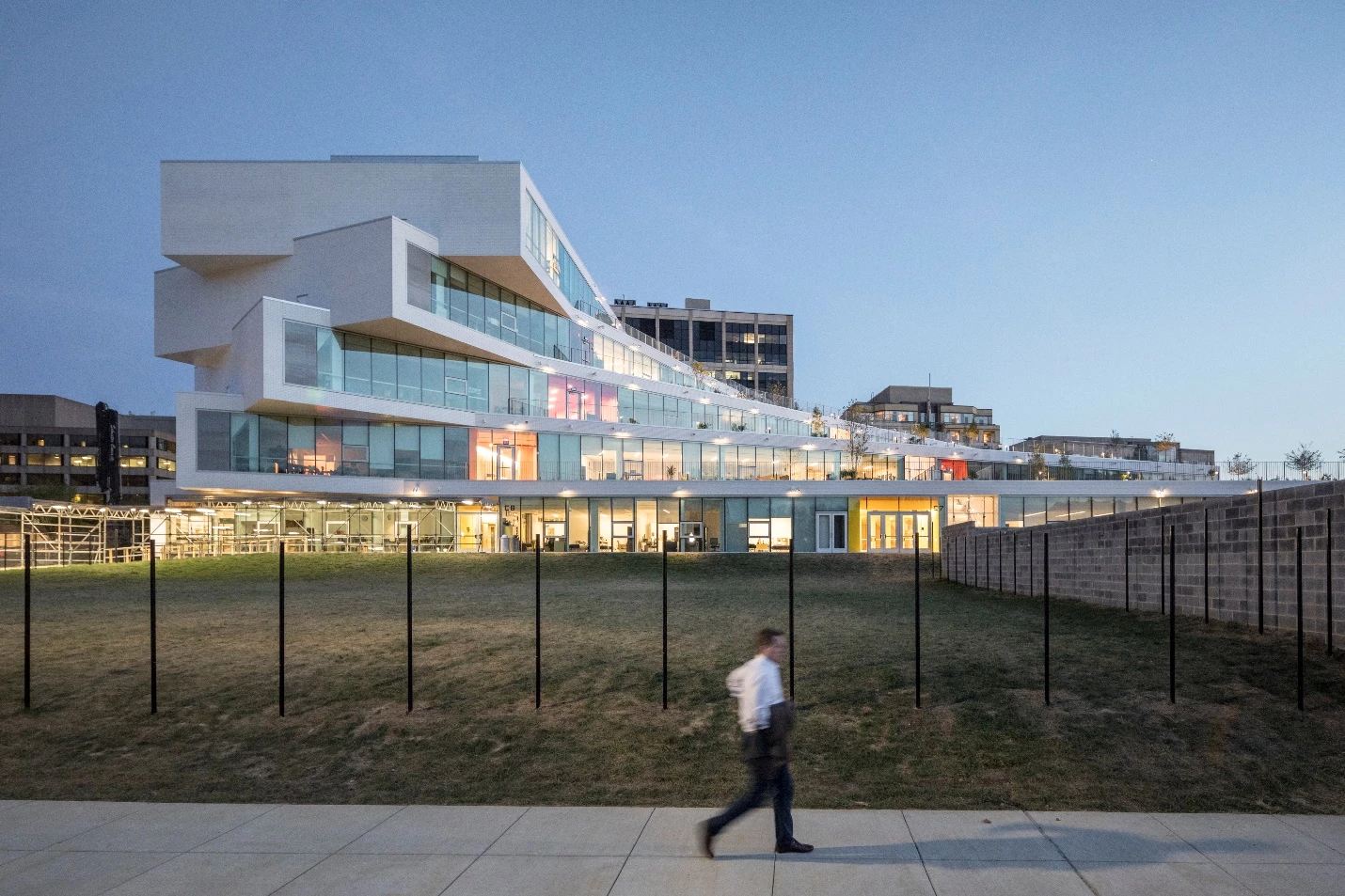Bjarke Ingels Group (BIG) has had a remarkably busy year and, following its recent completion of The Twist and CopenHill, is back again with a new project called The Heights. The public school, which also involved Leo A Daly as executive architect, has an unusual design that fans out to create outdoor terrace areas in a compact site.
The Heights is located in Arlington, Virginia, and merges two previous schools, the H-B Woodlawn Program and the Eunice Kennedy Shriver Program, into a new building that will accommodate an expected 775 students, some of which have specialized education needs.
The building's overall form is informed by its location in a challenging compact urban site that's surrounded by roads on three sides and a park on the other. It's conceived as a stack of five rectangular slabs that fan out to create green-roofed terraces that serve as an extension of the classrooms.

"The density of the urban Arlington neighborhood became the inspiration for the school – we fanned the classrooms to allow each and every floor to be connected to the roof garden on top of the classrooms below," explains Bjarke Ingels, founder and creative director at BIG. "The resultant cascading terraces are connected by a curving stair that weaves through all levels – inside as well as outside – making all students, from both programs and all ages, visually and physically connected to each other. Each terrace is landscaped to lend itself not just to the social life of the students but also as informal outdoor spaces for learning."
The interior measures 180,000 sq ft (16,700 sq m) and is centered around a staircase that connects each of the floors. Upper areas are used for quiet study and smaller classes, with standard classrooms below.
The auditorium, gymnasium, library, reception and cafeteria are centrally located, next to the lobby, and are designed to aid students in sensory processing, as are the occupational physical therapy suite, and sensory cottage. The first terrace and recreation field also double up as public event spaces.

The project is slated to receive LEED Gold (a green building standard) and its green roof system is actually quite involved. Its soil has been calculated so as to be deep enough to grow large trees and to manage stormwater runoff. Additionally, the greenery is irrigated by a rainwater recycling system.
Sources: BIG, Leo A Daly









